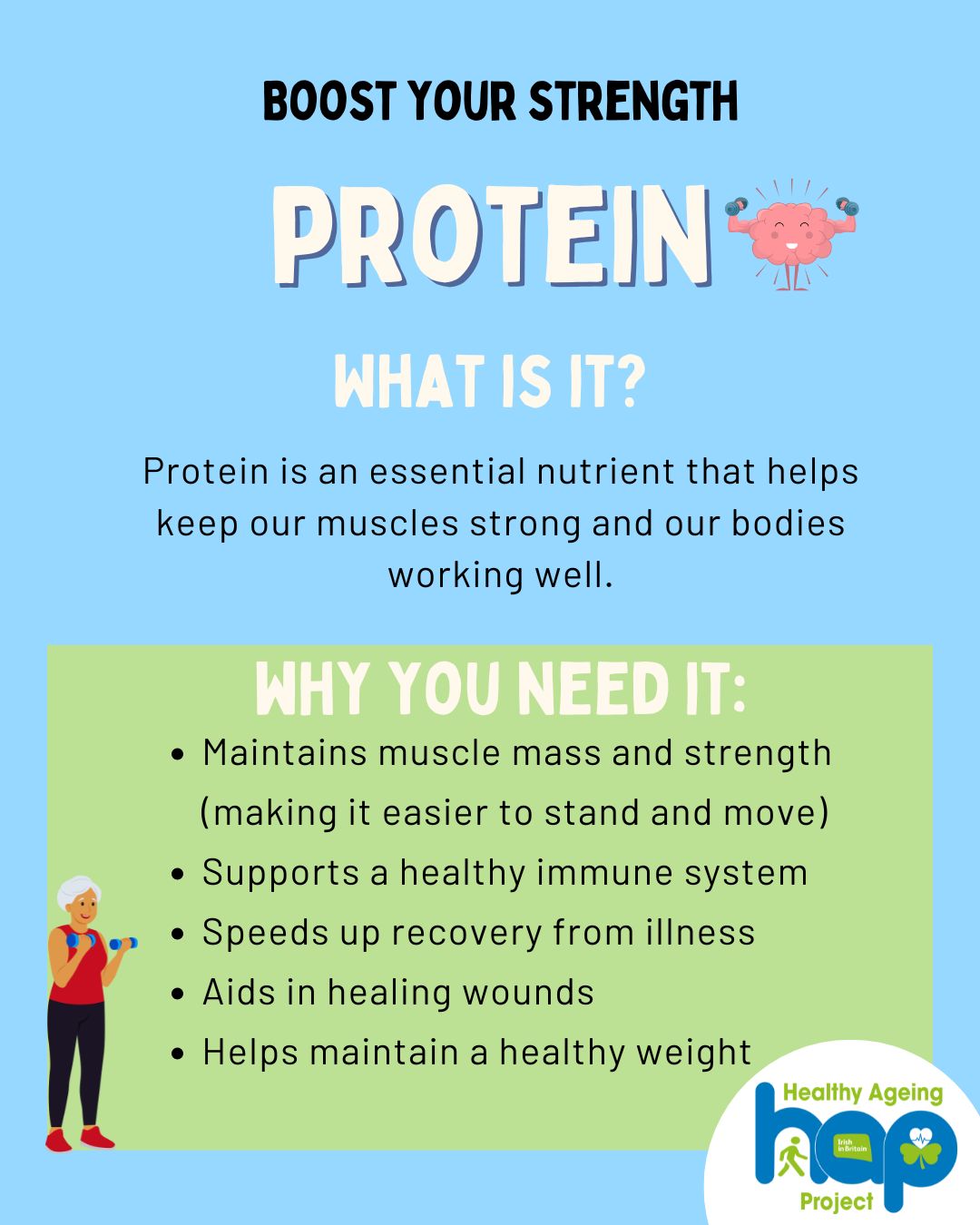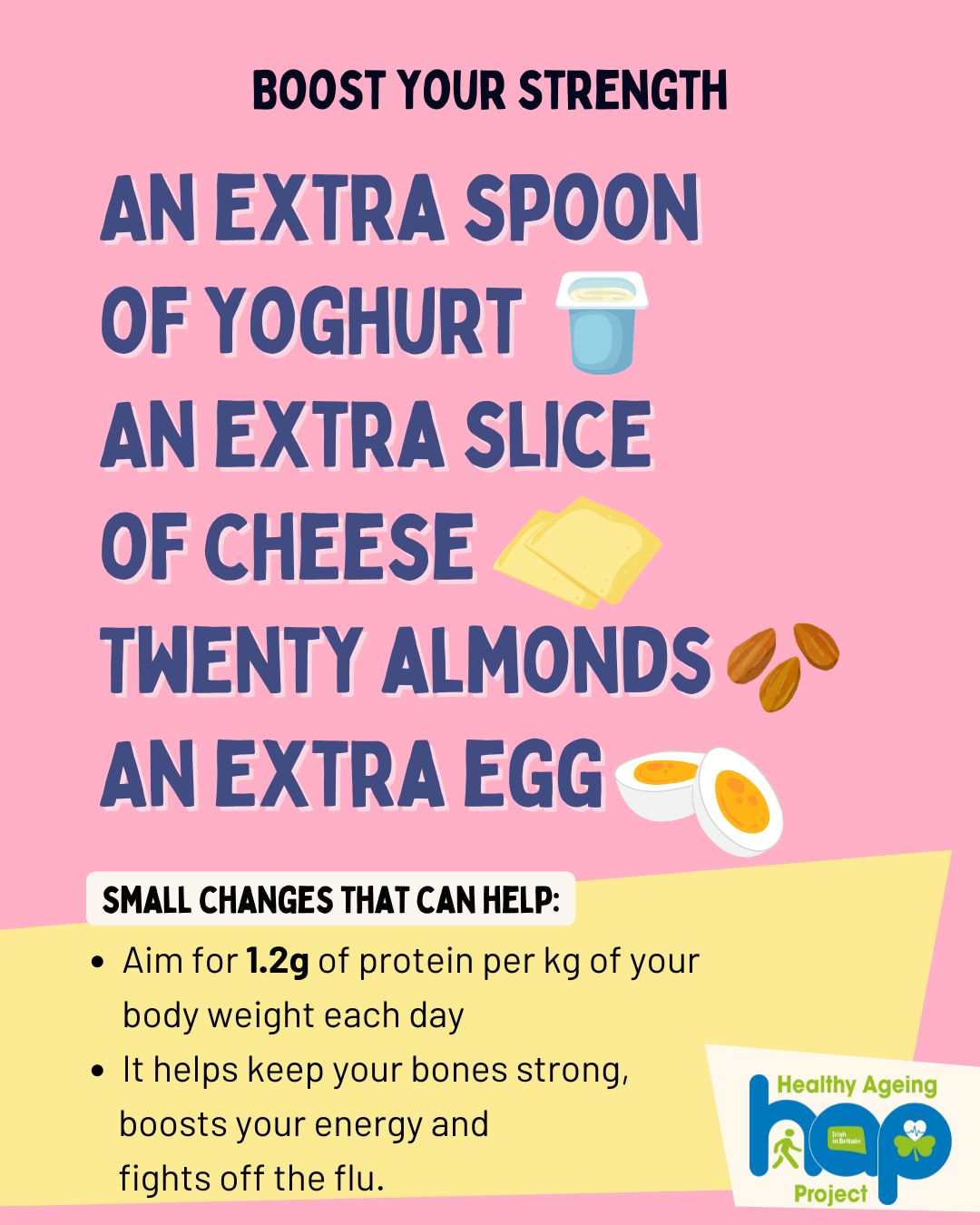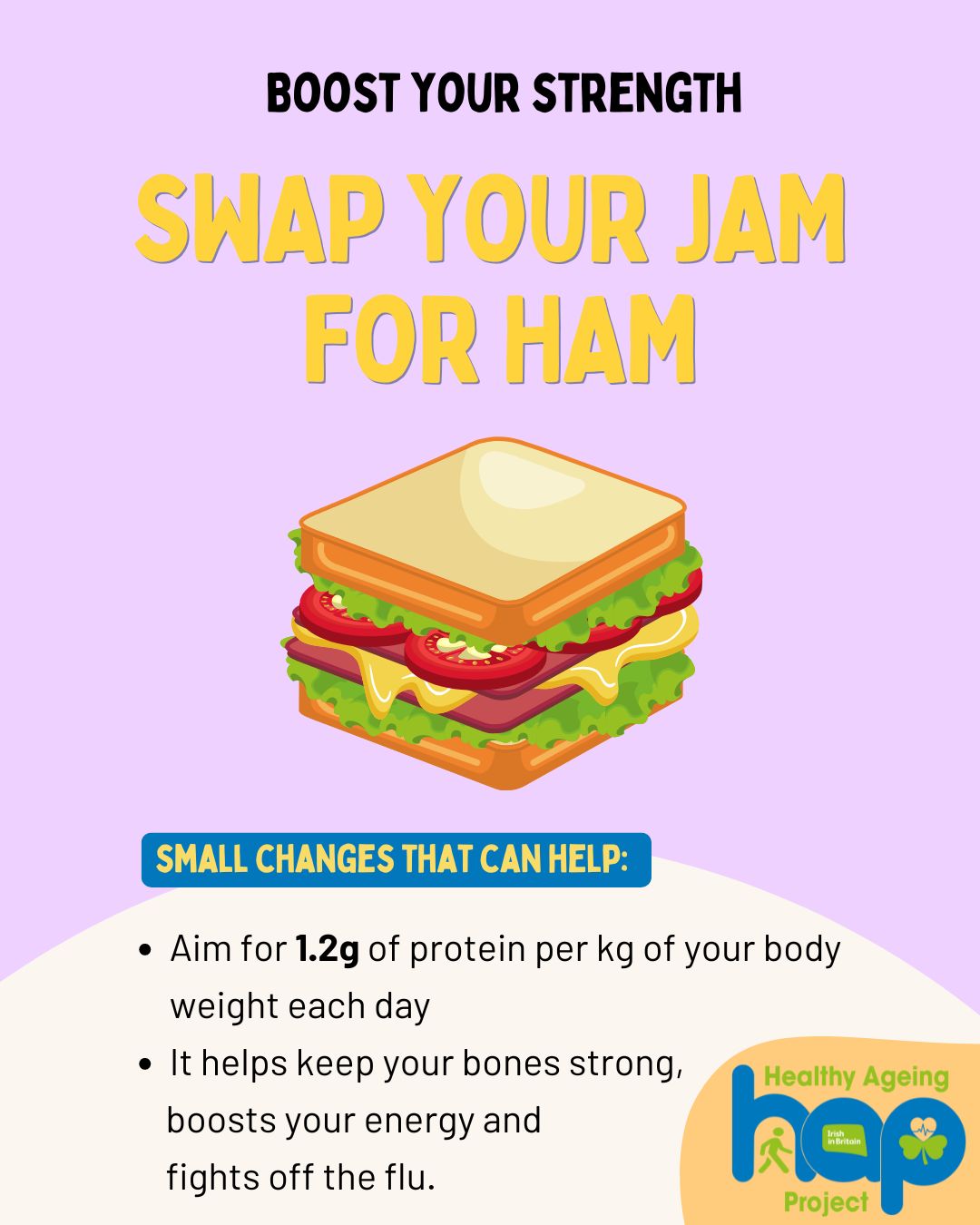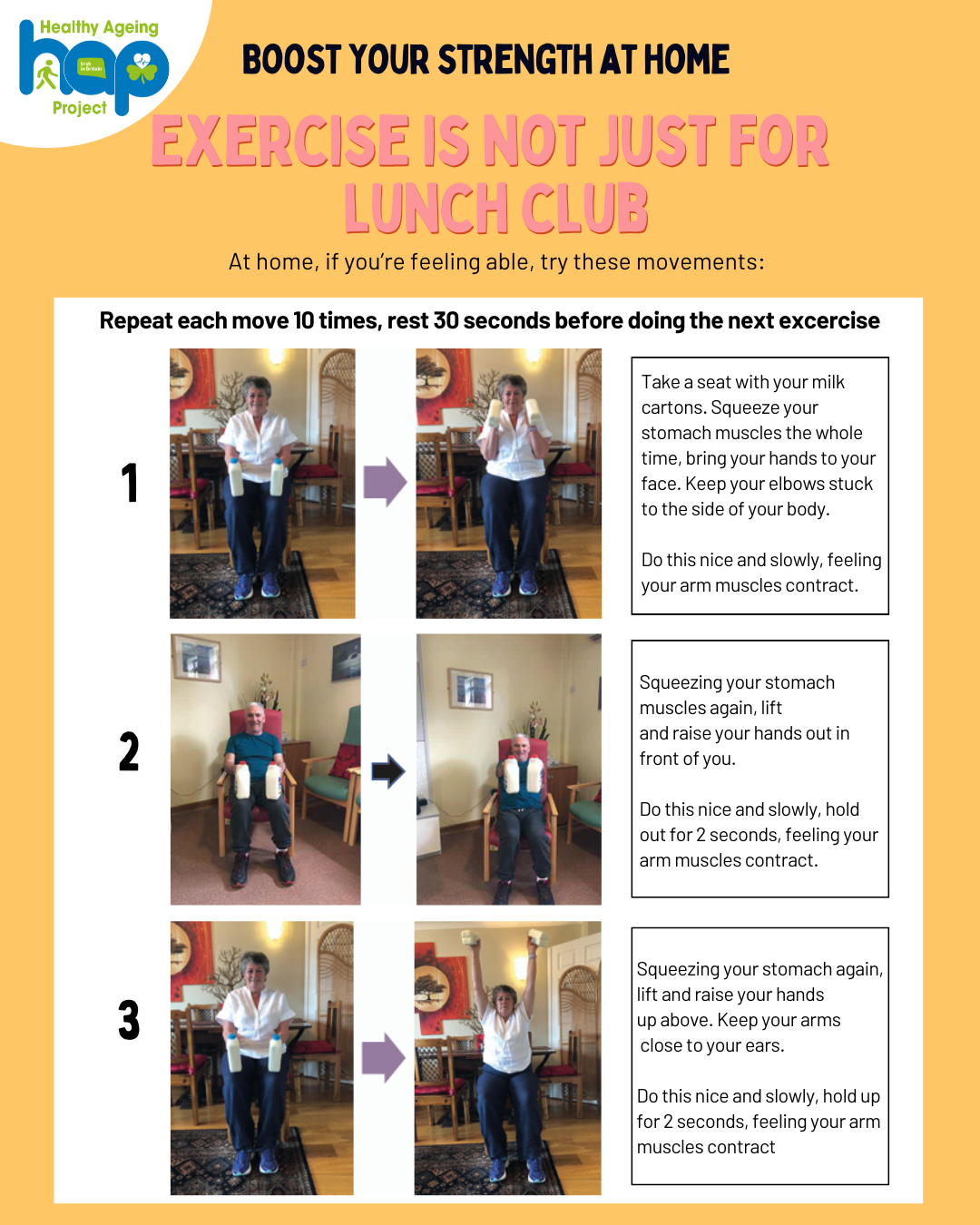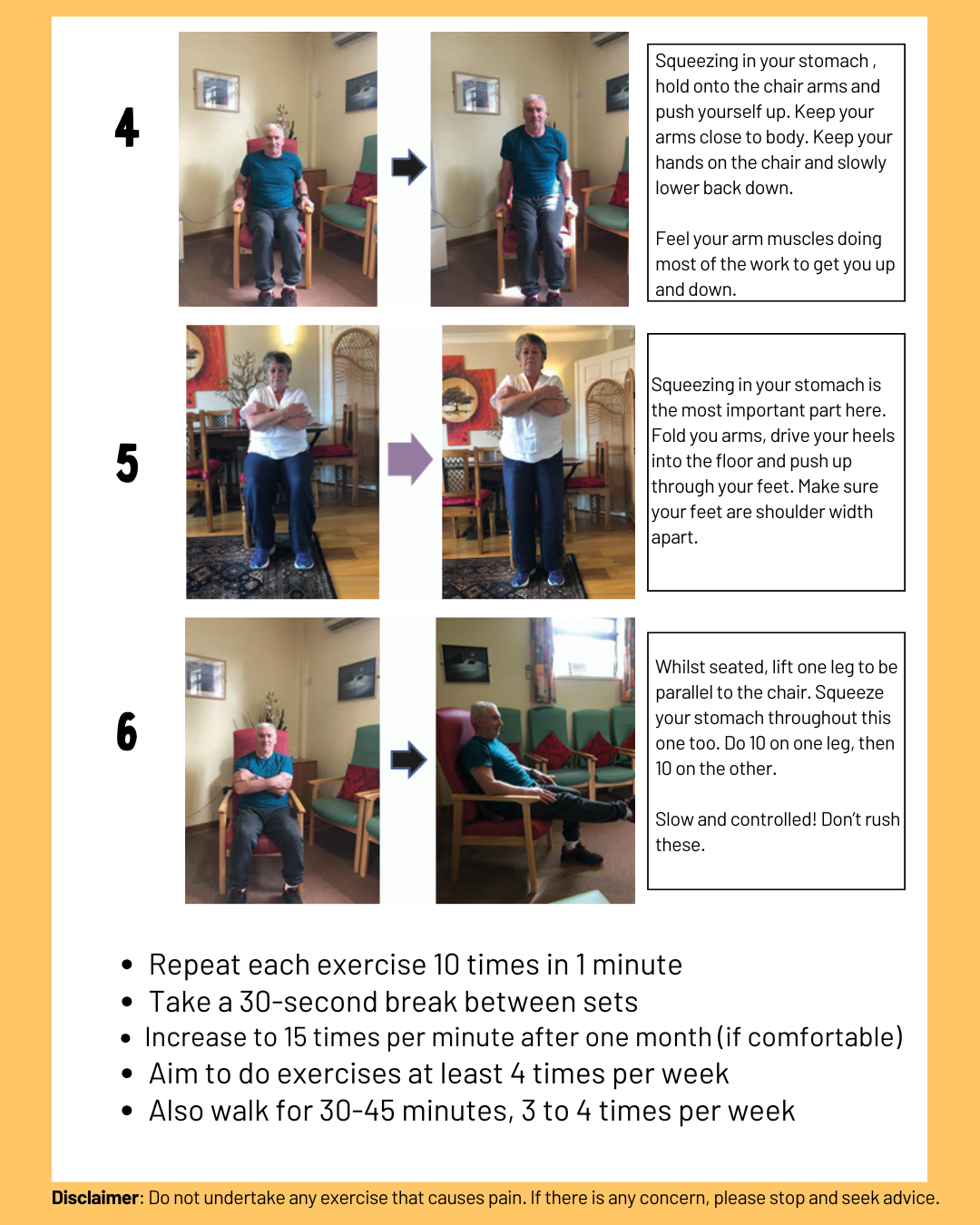Boost Your Strength: Simple Strategies to Prevent Frailty
Posters
As Dr. Mary Tilki highlighted, frailty can be understood as a loss of reserve and resilience, affecting the ability to withstand and recover from illnesses, accidents, and other setbacks. People living with frailty are more likely to experience greater disability, falls, immobility, and may require hospital or care home admission. One of the most effective ways to prevent frailty in older adults is by incorporating simple, practical strategies—such as increasing protein intake in their diets.
To support this, we’ve created a series of “Boost Your Strength” posters, designed to subtly encourage healthier meal and snack choices. These posters focus on small, practical changes that can help maintain and restore muscle mass and strength.
We’d love for you to print and display these posters at your centres to help promote these important habits.
If you don’t have access to a printer, please let us know, and we’ll be happy to send them to you. Contact Hayley, hreynolds@irishinbritain.org
|
|
|
Boost Your Strength: Move More!
The next piece in our Boost Your Strength series focuses on the importance of movement – something that we can hope to incorporate into our daily lives to keep our bodies strong and capable.
Why Moving More Matters
Whilst it is so important to stand up regularly - movement, particularly engaging your muscles, plays a critical role in keeping your bones strong, improving balance and maintaining overall mobility.
Here we have a brilliant video created by Maggie Savill (maggie@maggie-savill.co.uk), a vibrant fitness instructor who explains what certain movements can help us with and how to do them. Every Wednesday, she leads a 45-minute fitness session at Milton Keynes Irish Welfare just before their lunch club.
No matter your age or fitness level, everyone gets involved as it's not about working hard—it's about simply moving.
| |
Download PDF |
|
The Research Backs It Up
Thanks to some key research conducted by University College Dublin, we have a deeper understanding of why certain movements and exercises are so beneficial. From their findings, they have put together a series of exercises that can easily be done in centres or even at home.
These exercises are not complicated and are designed to fit into your daily routine.
The key takeaway is that movement isn’t just for the weekly fitness class—it’s something we can all do throughout the week. Whether it's gentle stretches in the morning, a walk in the afternoon, or following along with exercises at home, keeping our bodies strong and able is easier than we think.
Remember, the more you move, the stronger you become—not just physically, but mentally too.
